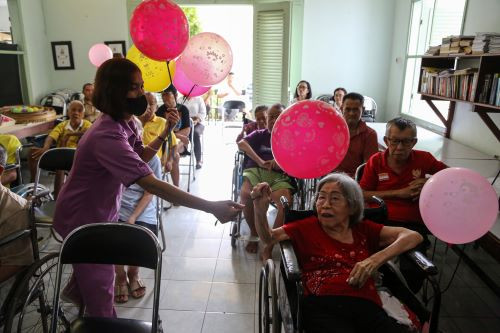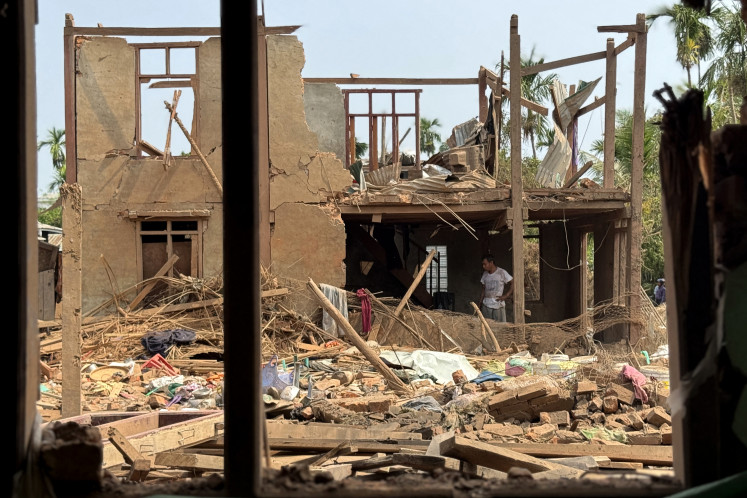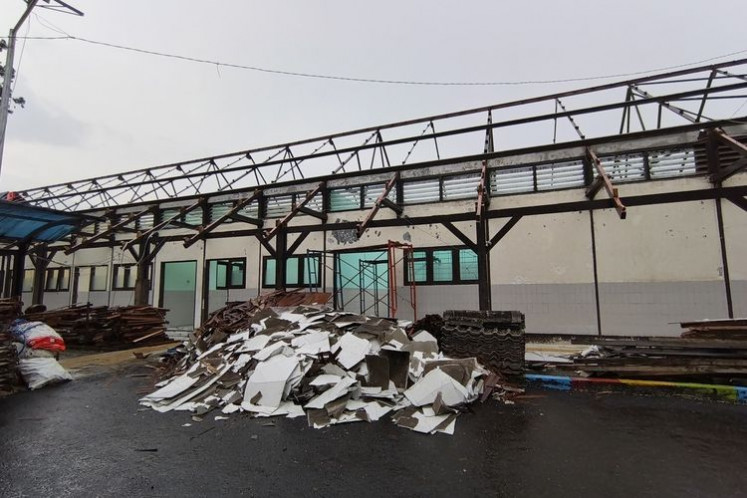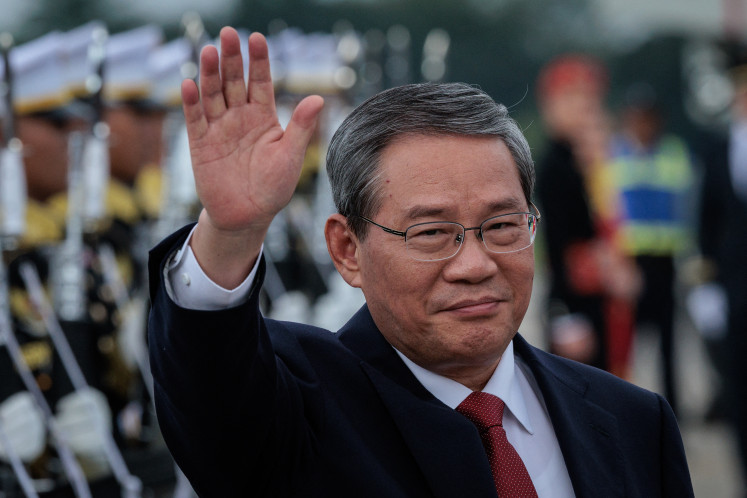TNI challenges from within
It is important to also ensure that involving the TNI in operations or duties other than war will not run counter to or in conflict with other laws and regulations.
Change text size
Gift Premium Articles
to Anyone
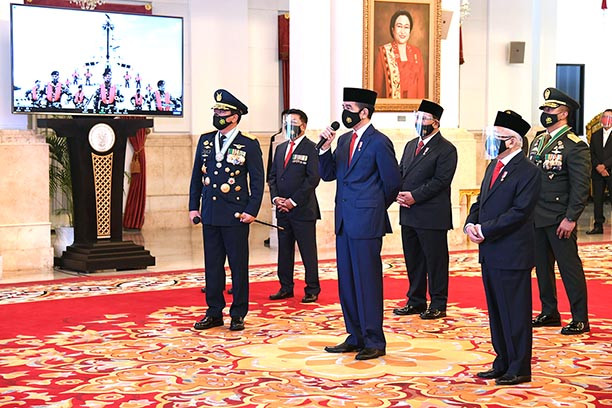 Top brass: President Joko “Jokowi” Widodo (center) talks to Indonesian Military (TNI) personnel in a virtual event to commemorate the 75th anniversary of the TNI at the State Palace in Jakarta on Monday. The President was accompanied by Vice President Ma’ruf Amin, Defense
Minister Prabowo Subianto, TNI commander Air Chief Marshal Hadi Tjahjanto, Presidential Chief of Staff Moeldoko and Army chief of staff Gen. Andika Perkasa, among others. (Courtesy of Presidential Secretariat/Lukas)
Top brass: President Joko “Jokowi” Widodo (center) talks to Indonesian Military (TNI) personnel in a virtual event to commemorate the 75th anniversary of the TNI at the State Palace in Jakarta on Monday. The President was accompanied by Vice President Ma’ruf Amin, Defense
Minister Prabowo Subianto, TNI commander Air Chief Marshal Hadi Tjahjanto, Presidential Chief of Staff Moeldoko and Army chief of staff Gen. Andika Perkasa, among others. (Courtesy of Presidential Secretariat/Lukas)
T
he 75th anniversary of the Indonesian Military (TNI) was celebrated in a solemn and quiet mood in a ceremony led by President Joko “Jokowi” Widodo from the Presidential Palace and broadcast to military units across the country on Monday. The ceremony was a far cry from past traditions of grandiose celebration with massive displays of both weaponry and troops.
The reason is simple — the whole nation is so preoccupied physically, mentally and financially in combating the COVID-19 pandemic that it was impossible to hold a massive, power-projecting TNI event as used to happen in the past. Such a modest anniversary celebration, however, is a blessing in disguise for the country as it can result in a reallocation from the budget for the TNI anniversary.
The modest celebration apart, the event should give the TNI and national defense stakeholders a moment for introspection.
The role and responsibility of the TNI as the country’s key defense force against external security threats is clearly stipulated in Law No. 34/2004 on the TNI. Apart from external threats, the law also regulates basic operational guidelines for the TNI’s involvement in both war and nonwar operations.
It is therefore reasonable, given the growing and complex challenges the country is facing, for TNI troops to be deployed to help the police maintain domestic security and order, assist other institutions in upholding policy implementation, or to get involved in rescue operations at times of national disasters. Most recently TNI soldiers have been helping the government enforce health protocols to curb COVID-19 transmission. All the nonwar operations are justified under the 2004 Law.
It is also becoming commonplace to see TNI troops get involved in counterterrorism or security enforcement at home under the National Police’s coordination. It has been at the forefront — due to its troops’ readiness and its possession of heavy and rescue equipment — in rescue operations. It is, however, important to also ensure that involving the TNI in operations or duties other than war will not run counter to or in conflict with other laws and regulations. While the TNI Law permits troops’ engagement in the aforementioned deployments or duties, concerns have mounted on potential overlapping authority, if not abuses of power.
The TNI’s new role in counterterrorism, for example, will need clear definition and rules of the game given that the central gravity of this role rests with the police, while the policy making is with the National Counterterrorism Agency.
Security threats, including from external forces, have expanded from traditional war threats emanating from adversary countries to complex, difficult-to-detect ones through proxies, to nonstate terrorism, and to chemical, nuclear and cyberattacks.
The country needs the TNI to respond to such multiplying security threats, but in a manner that falls in with the nation’s quest for armed forces that protect the people and safeguard their hard-won democracy. As the independence war in the early years of the Republic showed, a poorly armed TNI proved its loyalty to the nation and will remain able to do so, despite the greater challenges lying ahead.
Happy 75th anniversary, TNI.




